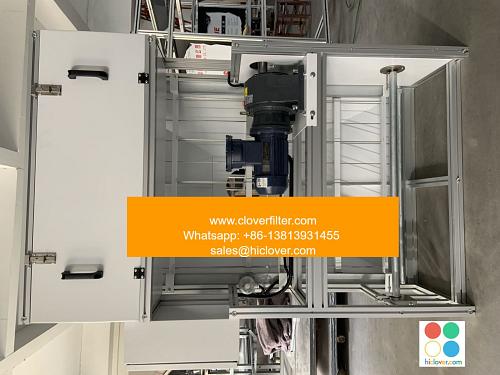Societal Benefits of Air Filtration: A Review of the Literature

Air filtration is a crucial aspect of maintaining indoor air quality and has numerous societal benefits that impact our daily lives. This article aims to provide a comprehensive review of the literature on the societal benefits of air filtration, highlighting various application areas and key words that are relevant to this field.
Introduction to Air Filtration
Air filtration refers to the process of removing airborne pollutants and particulate matter from the air, improving the overall indoor air quality. This is achieved through the use of air filters, which can be installed in heating, ventilation, and air conditioning (HVAC) systems, air purifiers, and other air cleaning devices. The benefits of air filtration are numerous, ranging from improved respiratory health to increased productivity and energy efficiency.
Societal Benefits of Air Filtration
The societal benefits of air filtration can be categorized into several key areas, including:
* Health benefits: Air filtration can help reduce the prevalence of respiratory diseases, such as asthma and chronic obstructive pulmonary disease (COPD), by removing allergens and particulate matter from the air.
* Environmental benefits: Air filtration can help reduce the emission of greenhouse gases and other pollutants by improving the efficiency of heating and cooling systems.
* Economic benefits: Air filtration can help reduce the cost of healthcare and lost productivity due to respiratory problems and other health issues.
Application Areas of Air Filtration
Air filtration has a wide range of application areas, including:
* Commercial buildings: Air filtration is essential in office buildings, schools, and hospitals to maintain good indoor air quality and prevent the spread of diseases.
* Industrial settings: Air filtration is crucial in manufacturing facilities and other industrial settings to remove hazardous pollutants and particulate matter from the air.
* Residential settings: Air filtration is essential in homes and apartments to maintain good indoor air quality and prevent health problems.
Key Words and Technologies
Some of the key words and technologies associated with air filtration include:
* HEPA filters: High-efficiency particulate air filters that can remove 99.97% of particulate matter from the air.
* Activated carbon filters: Filters that use activated carbon to remove gases and odors from the air.
* Ultraviolet (UV) light technology: Technology that uses UV light to kill bacteria and viruses in the air.
* Internet of Things (IoT) technology: Technology that allows air filtration systems to be controlled and monitored remotely using smart sensors and mobile apps.
Conclusion
In conclusion, air filtration has numerous societal benefits that impact our daily lives, ranging from improved respiratory health to increased productivity and energy efficiency. The application areas of air filtration are diverse, including commercial buildings, industrial settings, and residential settings. By understanding the key words and technologies associated with air filtration, we can better appreciate the importance of this field and work towards creating a healthier and more sustainable environment for everyone. You haven’t asked a question or provided a prompt for me to respond to. Please provide more context or information so I can give you a helpful answer. What’s on your mind?

